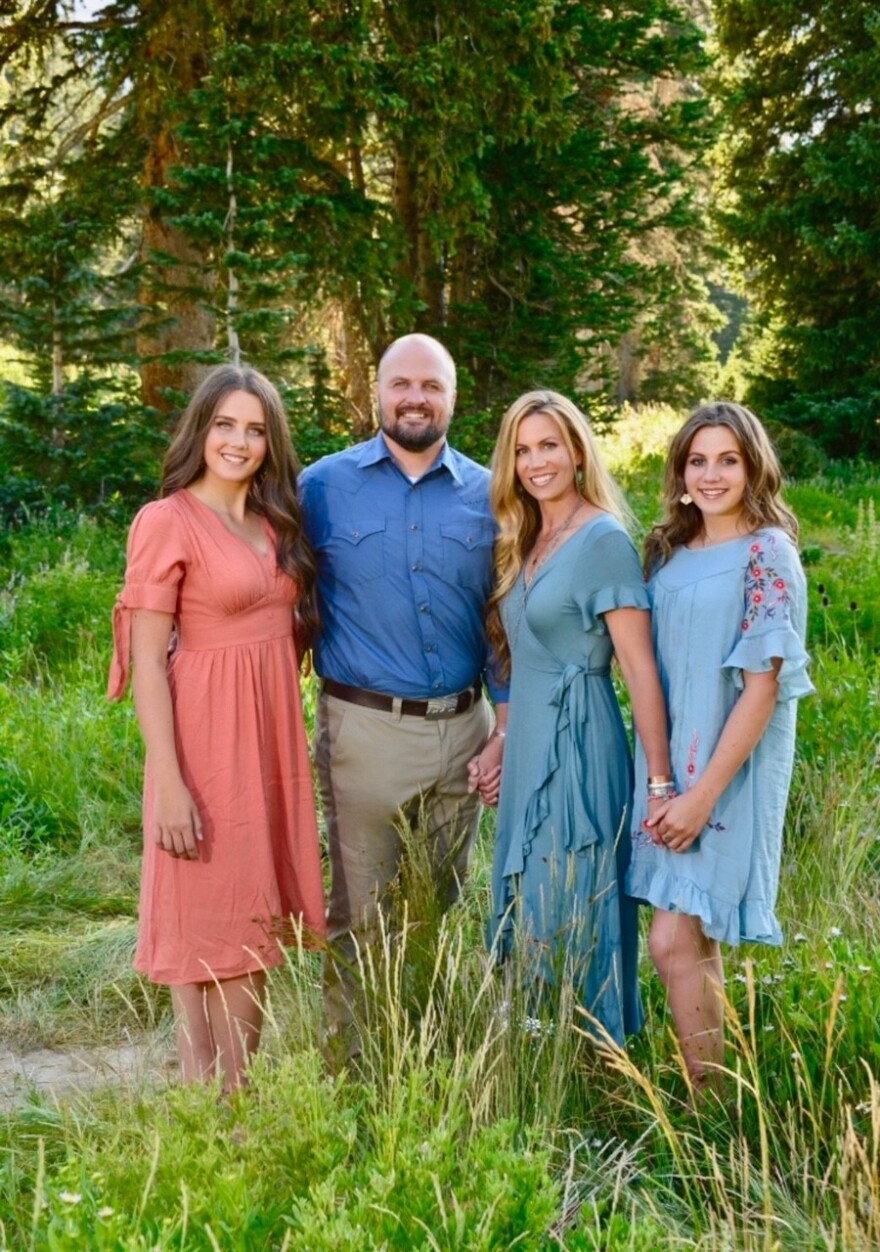In 2017, yoga therapist Elise Jones fulfilled a lifelong dream of backpacking to Everest Base Camp, a feat especially impressive because she was six months removed from open heart surgery.
“And I cried every day, because I could, I was able to do it," she said. "And it took about three weeks, over 110 miles and my heart was a champ.”
When Jones was 30, she was diagnosed with Atrial Septal Defect (ASD), an issue between the heart’s two upper chambers. Many medical challenges followed, the gravest of which was the insertion of a medical device that caused severe pain and was removed nine years later with open heart surgery.

The mom of two’s condition stabilized until 2021 when she was flown to the hospital and diagnosed as Stage D, the final stage of heart failure. She said her recovery has been long, hard and slow. Her daily regime and activity level has forever changed but she is grateful her body is responding well to a cocktail of medications.
“Right now I'm at a place where I feel a lot better," she said. "I used to give myself a dark day every week, which was I let myself cry and be angry and let myself feel everything because there is a very hard reality.”
According to the American Heart Association, more than 6 million Americans are living with heart failure and one in five over age 40 will receive the diagnosis.
“My heart is really weak," she said. "But the difference between an emotionally broken heart and a physically broken heart, I've had both, is that emotionally broken hearts are a lot harder to heal. So I'm very aware of my caretakers and seeing my illness through the eyes of my family.”

By all appearances, Jones looks like the model of health. She emanates positivity and dresses in quirky candy-colored styles. She is zen and stardust; she teaches roller fitness, a meld of yoga and her love of roller-skating, the embodiment of freewheeling joy.
Jones has thousands of followers on social media where she educates and empowers others about chronic illness. Sometimes her posts are raw and deeply personal, other times, light-hearted. She recently documented her bedtime routine with her husband Chris.
“Honestly, every night we got to this point where we're looking at each other laughing," she said. "It takes us 20 minutes to get ready for bed because I've got my pills, he has his nebulizer, then I put on my compression socks. He put on his CPAP machine. I put on my braces, he put on the elastics for his braces and we were just looking at each other going, ‘This is ridiculous.’”
She said laughter has been healing for them and described her husband as her lifeline.
“When I had my first MRI when I found out I had ASD, they saw the clots on my brain," she said. "When Chris looked at the X-ray, he said, ‘Well, that explains everything,’ and we burst out laughing. I'm like, ‘Shut up,’ and we were laughing so hard. And the doctor was looking at us like, ‘OK, this isn't funny.’ And we said, ‘But that's how we deal.’”
Through her training as a yoga therapist, Jones also knows how to confront tough subjects and said grieving yourself is a different process than grieving someone else.
“When you're grieving yourself, it's almost like you feel guilty because you're still here," she said. "And it’s almost like you don't have a right to grieve because you still have this life. But it's also going through those same grieving processes to get yourself from ‘Why me’ and focusing on what you can't do to get to the point where it is post-traumatic growth and it's a joy by focusing on what I can do. “
So, what would Jones say to her 29-year-old self before her life was upended 17 years ago?

“I would tell her, ‘Your life's going to get better’ at a point when she thought it was going to be over," she said. "Just to hold her and say, ‘Just wait, wait until you see what your life's going to be. It's going to get worse, it's going to get harder, your reality is going to be a lot worse. But you're going to be so much happier. Just because of the lessons learned, like with whom and how you spend your time, not worrying about things, not feeling like you have to try so hard.”
Jones said her shortened life expectancy has deepened her connection with God and made her more compassionate. Her summits may be different now but she said she’s never been happier because she is choosing to live life to the fullest in the best way she can.


